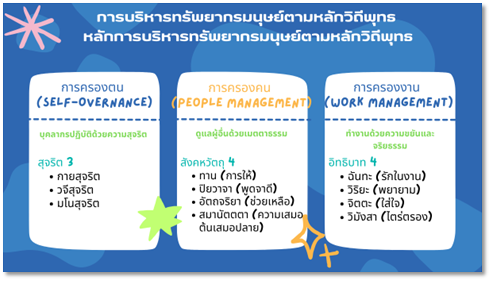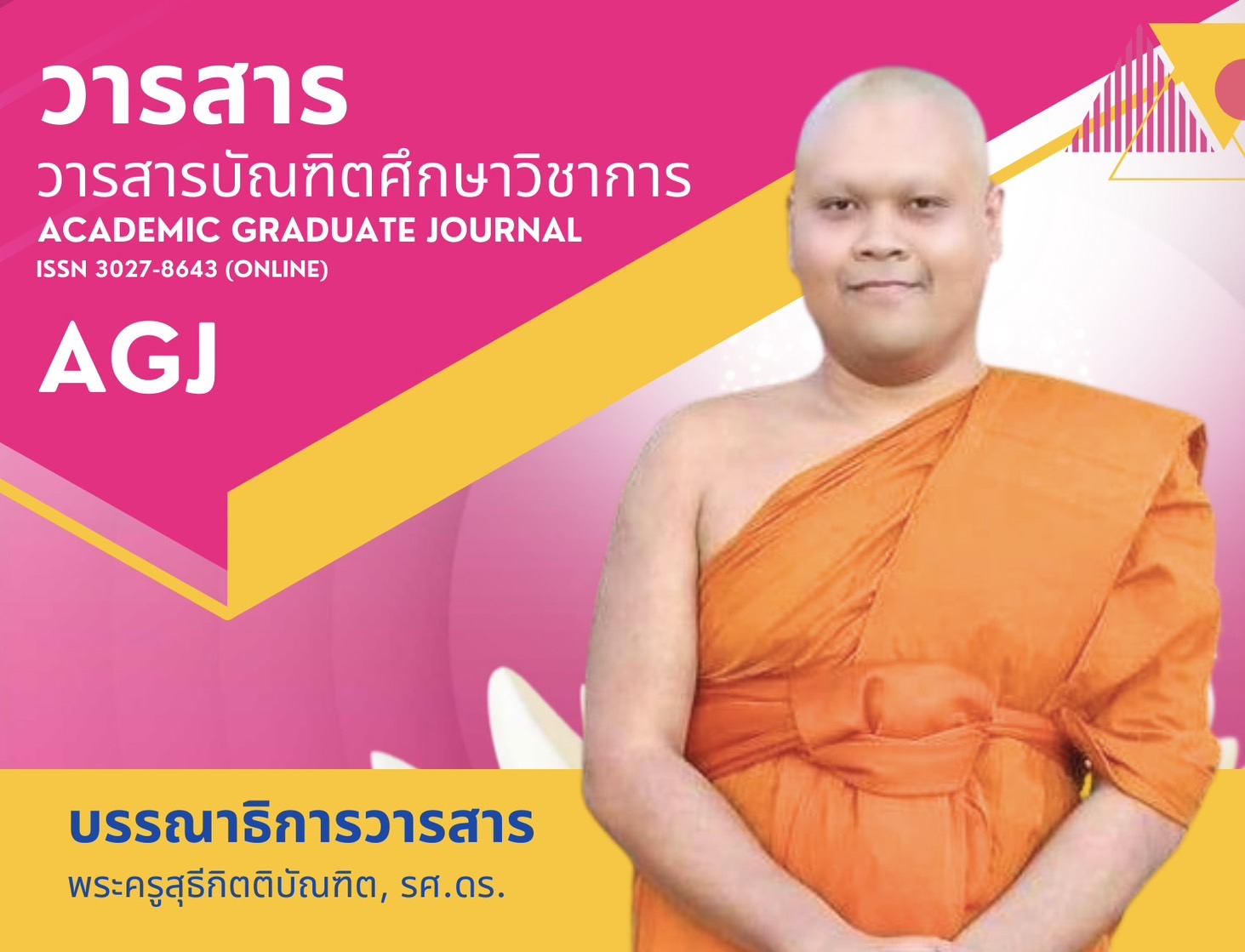HUMAN RESOURCE MANAGEMENT POLICY ACCORDING TO BUDDHIST PRINCIPLES
Keywords:
Evolution, Law, Hostile PossessionAbstract
This research article presents a study on “Human Resource Management Policy Based on Buddhist Principles” aimed at improving the efficiency and effectiveness of public administration. The article focuses on integrating Buddhist principles into the framework for developing human resource management policies. The incorporation of these principles into management policies helps promote transparency, fairness, and social responsibility, thereby enhancing public confidence in governmental operations. The article presents three key policies: 1. Self-governance policy emphasises that public officials must adhere to honesty and integrity, avoid seeking personal gain, and refrain from abusing power, aligning with the three principles of purity: physical purity (Kaya-security), verbal purity (Vaci-security), and mental purity (Mano-security). 2. People management policy focuses on caring for the public with kindness, fairness, and gentleness, in accordance with the four Sangahavatthu principles: giving (Dana), kind speech (Piyavaca), helpfulness (Atthacariya), and consistency (Samanattata), which help foster trust between public officials and citizens. 3. Work management policy encourages personnel to work diligently, with clear goals and a firm adherence to ethics, following the Four Iddhipadas: desire (Chanda), effort (Viriya), thoughtfulness (Citta), and investigation (Vimamsa). Applying these principles is proposed as a guideline for developing human resource management policies in the public sector to achieve maximum efficiency. It also promotes public trust through sustainable and transparent government operations. Furthermore, these approaches foster the personal development of personnel in parallel with organisational growth, resulting in long-term benefits for both society and the public.
References
จิรภัทร ทัศนะนาม. (2563). ธรรมะกับการบริหารงานในองค์กรสมัยใหม่. กรุงเทพฯ: สำนักพิมพ์การศึกษาไทย.
พระพรหมคุณาภรณ์ (ป.อ. ปยุตฺโต). (2545). ธรรมนูญชีวิต (พิมพ์ครั้งที่ 46) กรุงเทพฯ: โรงพิมพ์กรมศาสนา.
______. (2546). พจนานุกรมพุทธศาสตร์ ฉบับประมวลธรรม. กรุงเทพฯ: มหาวิทยาลัยมหาจุฬาลงกรณราชวิทยาลัย.
พระมหากำพล คุณงฺกโร. (2559). การพัฒนาทรัพยากรมนุษย์แนวพุทธ. วารสาร มจร สังคมศาสตร์ปริทรรศน์, 5(2 ฉบับพิเศษ), 387-396.
มหาวิทยาลัยมหาจุฬาลงกรณราชวิทยาลัย. (2539). พระไตรปิฎกฉบับภาษาไทย ฉบับมหาจุฬาลงกรณราชวิทยาลัย. กรุงเทพฯ: โรงพิมพ์มหาจุฬาลงกรณราชวิทยาลัย.
ราชบัณฑิตยสถาน. (2556). พจนานุกรม ฉบับราชบัณฑิตยสถาน พ.ศ. 2554 (พิมพ์ครั้งที่ 2). กรุงเทพฯ: ราชบัณฑิตยสถาน.
สุชีพ ปุญญานุภาพ. (2560). การพัฒนาตนเองผ่านหลักธรรมอิทธิบาท 4. ขอนแก่น: มหาวิทยาลัยขอนแก่น.
เสถียร โพธินันทะ. (2555). พุทธศาสนากับการทำงาน. กรุงเทพฯ: สำนักพิมพ์สยามธรรม.
อานันท์ ปัญจโคตร. (2564). วิริยะ: หัวใจของการประสบความสำเร็จ. เชียงใหม่: สำนักพิมพ์ธรรมศึกษา.
Anderson, J. E. (2010). Public Policymaking: An Introduction (7th ed.). Boston: Cengage Learning.
Armstrong, M. (2020). Armstrong's handbook of human resource management practice (15th ed.). London: Kogan Page.
Dye, T. R. (2017). Understanding Public Policy (15th ed.). London: Pearson Education.
Easton, D. (1965). A Systems Analysis of Political Life. John Wiley & Sons.
empeo.com. (2567). 5 เกร็ดความรู้การบริหารทรัพยากรมนุษย์ที่ HR ยุคใหม่ห้ามพลาด. สืบค้น 24 พฤษภาคม 2567, จาก https://www.empeo.com/blog/hrm/-things-human-resource-management/#.
Hill, M. (2005). The Public Policy Process (5th ed.). London: Pearson Education.
Howlett, M. & Ramesh, M. (2003). Studying Public Policy: Policy Cycles and Policy Subsystems. Oxford: Oxford University Press.
Lasswell, H. D. (1956). The Decision Process: Seven Categories of Functional Analysis. College Park: University of Maryland.
Mayer, D.M. et al. (2012). Who displays ethical leadership, and why does it matter? An examination of antecedents and consequences of ethical leadership. Academy of Management Journal, 55(1), 151-171.
Noe, R. A. et al. (2019). Fundamentals of human resource management (8th ed.). New York: McGraw-Hill Education.
Wright, P. M., & McMahan, G. C. (2011). Exploring human capital: Putting ‘human’ back into strategic human resource management. Human Resource Management Journal, 21(2), 93-104.







